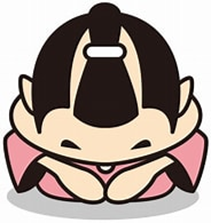Kyoto word “Ookini”
Yoshie Doi

When I give lectures in Tokyo or the metropolitan area, audience often say, “I was so happy to hear the Kyoto dialect today.” I don’t intend to speak in Kyoto language, but I wonder if the sound of the words is more “Hannari: Gorgeous, elegant, and cute” than standard Japanese. Maybe the intonation is different. Even if it is written in writing, you cannot understand it unless you listen to it.
Japanese is a special language and is said to have a sound range of 200 to 1,500Hz, which is close to the sounds of nature. English has a frequency of 2,000 to 12,000 Hz, which is far removed from natural sounds. In Japanese, every vowel and consonant has a meaning, and it seems that it leads to incorporating good frequencies into the body of the natural world.
In 1987, Masaru Emoto, who was the first in the world to successfully photograph water crystals, proved that if you say “thank you” to water, it will turn into beautiful crystals. When you yell, “You idiot,” the water crystals become distorted. I guess it’s the energy of the words that influences it.
Through his books “Message from Water” and “Water Knows the Answers,” Masaru Emoto widely communicated the relationship between water, consciousness, and vibrations to the world.
The crystals are influenced not only by people’s emotions and words, but also by what they see and hear, and take shape. The words “thank you” seem to have a lot of energy. It’s surprising that even within the same word, there are words with strong energy and words with weak energy.
ouse, when the flowers in a vase wither and their purpose is over, we always say, “Thank you for your hard work,” “Thank you,” and “Thank you,” before putting them in the trash. “Ookini” comes from the word “thank you very much.” If water has memories, I believe that the land and air must also have vibrations and memories from the human world. Utensils that have been used with care will last a long time and have a good taste. This means that invisible emotions have a big influence.
Am I the only one who thinks that in Kyoto, a sensory language, or rather a sensory language such as “hokkori” and “hannari”, has developed?
Tadanobu Tsunoda, professor emeritus at Tokyo Medical and Dental University, states in his book “The Japanese Brain” that “Japanese people can read the voices of insects.” In the West, it sounds like noise, but Japanese people have very well-developed right brains, so they can hear emotional sounds such as the sounds of insects, chirping birds, frogs, dogs, cats, cows, etc. (humming, chirping, laughter, cheering, etc.) Japanese people are said to be able to hear sounds such as the babbling of a stream or the sound of the wind using their language brain.
It is very interesting to know that the function of the right and left brains differs depending on whether the native language is Japanese or English.
I believe that the Kyoto language is a language that is spoken with an added sense of love. I think the Kyoto language is a language full of love and energy.
There is an ambiguity in the Kyoto language that if someone says, “Ookini. Thank you.” in the red light district of Gion, it means that the request has been made even if you haven’t responded. It is also unique to Kyoto that when you stand around and chat with your neighbors, you end up with conversations such as “Are you going out?”, “I’ll go out there for a while.”, and “Huh, That’s good.
As someone who was born and raised in Kyoto, I have been thinking about this recently, but what do you all think about the Kyoto language?
The end of document
Translated by Masami Otani
